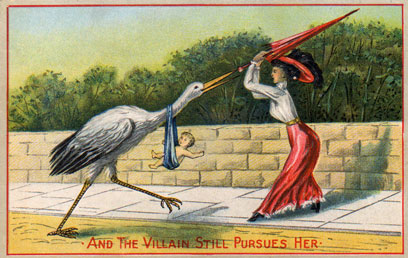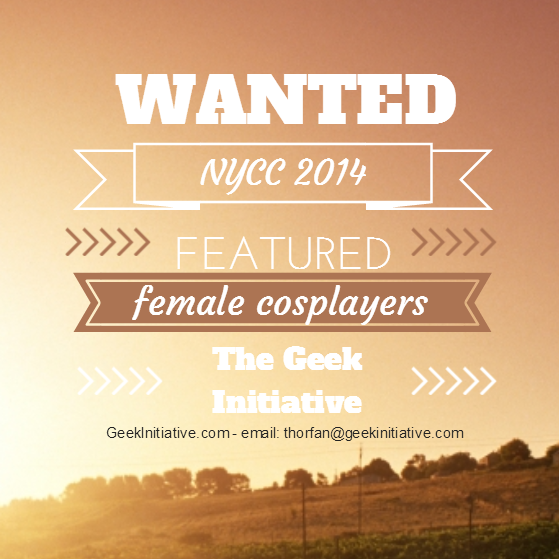Since Vox published Sarah A. Chrisman’s post on living the Victorian life on September 9, there have been a variety of criticisms and reactions posted. Chrisman’s post discussed how she and her husband Gabriel lead a Victorian-esque life and how their mutual appreciation for a bygone era led them to experience this “ongoing experiment.” But Chrisman failed to sell her lifestyle to historians, reenactors, and cynics because she didn’t really tell a story.
Then came the criticism with a side of victim blaming. And you know what’s less awesome than cherry-picking your history? Victim blaming.
Chrisman’s post also focuses on the material: different objects and materials they use, a bit about how and what they eat and prepare food, and the creation of clothing. While anyone inhabiting standards of the Victorian era undoubtedly spends more time creating and procuring everyday objects than we do, the sincerity of the story is lost there. I can use a book (or Google) or consult a librarian friend/history geek about bristle brushes if I need to learn more about them, but what I can’t learn about is how my marriage might be different if it were in another century.
Storytelling and Personal Branding
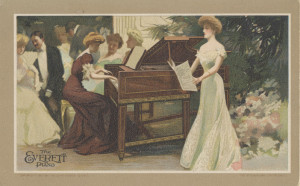 Chrisman has her own personal brand. She’s got a book and a website (although she doesn’t really address how and when she uses this modern technology, or under which restrictions) and writes books. While she’s been criticized for self-promotion, I think she’s on the right track: guest blogging is a wonderful way to showcase your expertise and grow your personal brand.
Chrisman has her own personal brand. She’s got a book and a website (although she doesn’t really address how and when she uses this modern technology, or under which restrictions) and writes books. While she’s been criticized for self-promotion, I think she’s on the right track: guest blogging is a wonderful way to showcase your expertise and grow your personal brand.
From the perspective of a digital marketer, Chrisman is doing exactly what she should be when it comes to publishing content about her experience.
However, she’s not telling her story, at least not in the now-infamous Vox post. Towards the end, she describes being ridiculed and bullied (with a death threat, even) due to her clothing and lifestyle choices.
As someone who has been going to events like LARPs (live action role playing games), renaissance faires, and steampunk gatherings in the last decade, I can assure you: the ridicule is as real as you think it might be.
[Tweet “The ridicule is as real as you think it might be.”]
What’s disappointing is the manner in which so much of it, in Chrisman’s case, was echoed by fellow geeks – fellow self-identified female geeks in particular – and the general public.
As someone who has been made fun of for eccentric clothing and lifestyle choices or for feeling comfortable in corsets and bodices (“…but aren’t you a feminist?”), I get how it’s easier to write about daily life, objects, or the empowering nature of your lifestyle instead of the challenges, but the struggle is part of the story.
[Tweet “The struggle is part of the story. #VoxVictorians #History #Life”]
I got into LARP because of my then-boyfriend (now husband) and I feel like it reinforces our relationship to roll out as a ‘team.’ And like any hobby could do, the shared interests we have always give us things to discuss, from combat in LARP to comic books. It’s also strained our relationship: do we sit this weekend out and spend time together, or do we LARP with a whole bunch of people? That’s the real story people probably want to know about the couple who LARPs, reenacts, or lives la vida Victoriana together – and if the couple intends to continue this indefinitely.
For History’s Sake, Answer Some Questions
Once Chrisman’s story was live, many friends and family members sent it to me because they knew I’d find it interesting (which I do). Especially from women, I heard the same questions, mostly about:
- Health and medicine: what about modern medical facilities?
- Cleanliness and hygiene: how does a Victorian stay clean and deodorized?
- Menstruation, contraception, and fertility: how does one deal with monthly periods, pregnancy prevention, and/or conception if living in another era?
- And of course: why did she choose to live a ‘privileged’ Victorian life?
These are topics I discussed at length with those who do have some expertise in history-related academia and those who do not. If I was living a Victorian life or aspects of it, I’d consider putting aside my modesty in the name of education. As a content marketer, I see each of these questions as a really hot topic that could help me sell books.
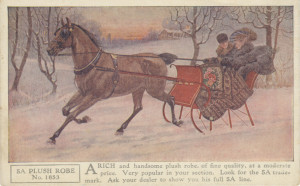 While it isn’t fair to demand Chrisman answer these types of questions – they’re very personal – they would give her story more truth and depth and some of her audience would be more forgiving.
While it isn’t fair to demand Chrisman answer these types of questions – they’re very personal – they would give her story more truth and depth and some of her audience would be more forgiving.
These have got to be FAQs.
For the record, I did contact Chrisman for an interview; I was very polite and she was interested, but declined to answer the questions I sent regarding criticism and personal health. I made it clear that I did not expect her to answer anything that made her uncomfortable, or anything she considered personal. Chrisman politely cited a lack of time as her reason for ultimately declining.
I bear no ill will towards her for going back on an interview – that’s always an interview subject’s prerogative once they see the questions – but I would advise her to speak out on these and other imperative issues to gain more traction with personal branding and less vitriol from her prospective readers.
On Equality in Marriage and in General
Researchers, academics, and so on are rightly curious about how Chrisman and her husband handle certain realities of Victorian times. In comparison to contemporary times, even a privileged white Victorian woman would have been very limited in terms of the choices she was allowed to make regarding personal finance, property ownership, and voting (as in she couldn’t).
While some would still criticize her for wanting to live in a time of oppression for people like her (and unlike her – think about racial inequality for black people and the status of natives and immigrants), Chrisman is creating a personal branding crisis for herself by avoiding discussion about these topics. Because let’s be real: you have to at least acknowledge that someone a little different than you was at risk of living in poverty, being hanged, or being denied work based upon country of origin.
It’s as simple as describing what she and her husband do to address these issues, or how they talk about them as Victorians…then explaining that they’re learning as they go, or maybe that she’s learned so much more about the meaning of equality as the result of her experiences.
[Tweet “It’s as simple as describing what she and her husband do to address these issues. #VoxVictorians”]
Most of the critics accuse Crisman of cherry-picking the most romantic, convenient, or aesthetic pieces out of life in her favorite era.
As someone who consciously does that on a regular basis as a medieval fantasy LARPer, I don’t have an issue with that, but how it’s presented in Chrisman’s piece as historically accurate. Yes, I know more than the average American about Irish history; yes, I RP in a culture inspired by that culture; yes, I am proud of my heritage – and hell yes, I’ve learned some things about aspects of my family’s culture that I wouldn’t have otherwise because I LARPed certain things. But I’m not an Irish history expert.
It’s odd having no statement about a lack of equality or the ethics involving slaves, former slaves, or servants. Wouldn’t you have a lot to think about knowing that your parents might have owned a slave, that you had little choice about who you’d marry, and that you might not survive childbirth? That’s a story. She should tell it. It’s easy to see why so many are offended by the lack of unpleasantries mentioned in her story and on her website.
Specific criticism and notes remain rather valid until addressed:
- In a response article on Slate, Rebecca Onion wrote “On the contrary, the Chrismans seem to deny that their experience of the past is mediated in any way, preferring to cast themselves instead as pure vessels of late-19th-century life.”
- On Washington Post, Alexandra Petri wrote about how after living like it was in the past, she enjoys “rushing back out of the machine and flings my arms around the flush toilet and my voting rights.”
- @Knitting_Kninja, a PhD student, proclaims that the era isn’t called ‘Victorian’ in the U.S. and that “Race isn’t some sideline in this time and place; it is a very specific part of daily life.”
Like, can you think of a big event in the US that took place between 1837 and 1901? BECAUSE I CAN, and I think that is far more defining.
— Krisandry O'Manocide (@Knitting_Kninja) September 9, 2015
Wow, weird, that immediately doesn't sound as good.
— Krisandry O'Manocide (@Knitting_Kninja) September 9, 2015
I was willing to assume the best of the Chrismans, but their failure to respond to these types of criticisms and comments makes me wonder why.
That Bullying Issue
Again, in the original piece, Chrisman states that she and her husband have been teased, threatened, and bullied over their lifestyle choice. And now they’re clearly not answering some more in-depth questions about these encounters and other aspects of their lives.
Gee…I wonder why?
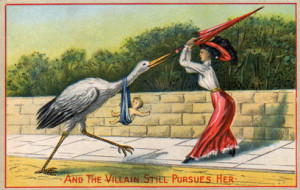 Yeah, it would be best for the Chrismans’ personal brand, but maybe it wouldn’t be so awesome for them. I like to think I’d answer those questions in their situation, but I’m not them and I can’t presume to know how they feel.
Yeah, it would be best for the Chrismans’ personal brand, but maybe it wouldn’t be so awesome for them. I like to think I’d answer those questions in their situation, but I’m not them and I can’t presume to know how they feel.
I get why historians, academics, and reenactors are critical of Chrisman’s post. They should be. There are too many unanswered questions and that makes much of Chrisman’s experiences feel suspect or not so genuine.
I also have to think about how so many women within geek culture immediately started with attacks and resentment. I get that it sucks when you’re a topic expert and someone else comes in, makes a name for herself, and presumes to know a lot about the hobby even though she is new at it and promotes potentially unsafe or inaccurate activities. It feels like they’re unraveling all of the work you’ve spent years doing; harming an image you’ve helped craft in a way that better represents your passion. It sucks. But maybe people like this also deserve a chance to grow.
To these types of critics, I advise writing a response.
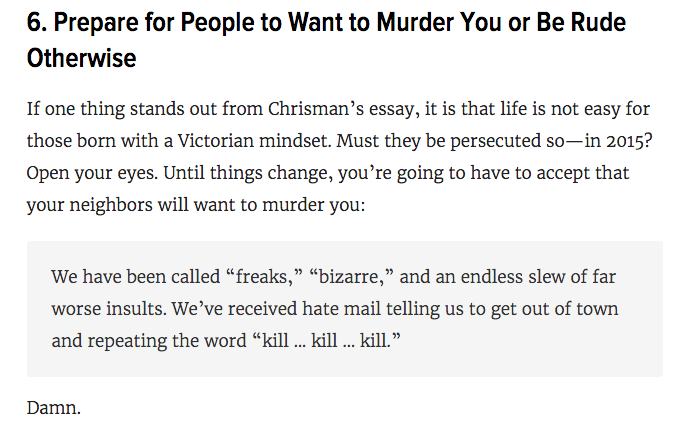 Then there’s Kelly Conaboy’s Gawker post, which offers a satirical take on Chrisman’s Vox piece. And oh yeah, Conaboy also implies that the “kill kill kill” comment Chrisman received should have been expected.
Then there’s Kelly Conaboy’s Gawker post, which offers a satirical take on Chrisman’s Vox piece. And oh yeah, Conaboy also implies that the “kill kill kill” comment Chrisman received should have been expected.
Satirically, Conaboy is pointing out that their suffering is nothing compared to what many Victorian-era people would have endured, particularly people of color and women – I totally get that. However, making light of a death threat or saying that Chrisman should expect this (or have to deal with it) is completely unacceptable.
Message and Meaning
There are lessons here about historical fact, personal branding, and bullying, but the most obvious takeaway is this: control your message and response. Don’t let your passion turn into a dumping ground for haters and don’t let your criticism of someone else make your work, life, or hobby look bad. (There’s a reason I never went back to a particular SCA chapter, and I’m not alone in that experience.) Don’t be that person – it’s toxic for your passion and its community and it’s toxic to other women.
Let’s learn from this and do better. In that spirit, try one of the following resources if you’re interested in Victorian-era life, reenactment, etc. I’m not a historian, I’m sure none of these are perfect, but it is a start to using more resources and consuming more media.
- PBS: The 1900 House
- Period Dramas: The Victorian Era
- Black Victoriana
- Keli Gwyn: Victorian Era Resources
- BBC: Ideals of Womanhood in Victorian Britain
Please consider adding more resources in the comments, especially if you have a background in history.
As a reminder, The Geek Initiative welcomes diverse opinions. However, we do not tolerate hatred, bigotry, or cyberbullying. Any such comments will be removed.

